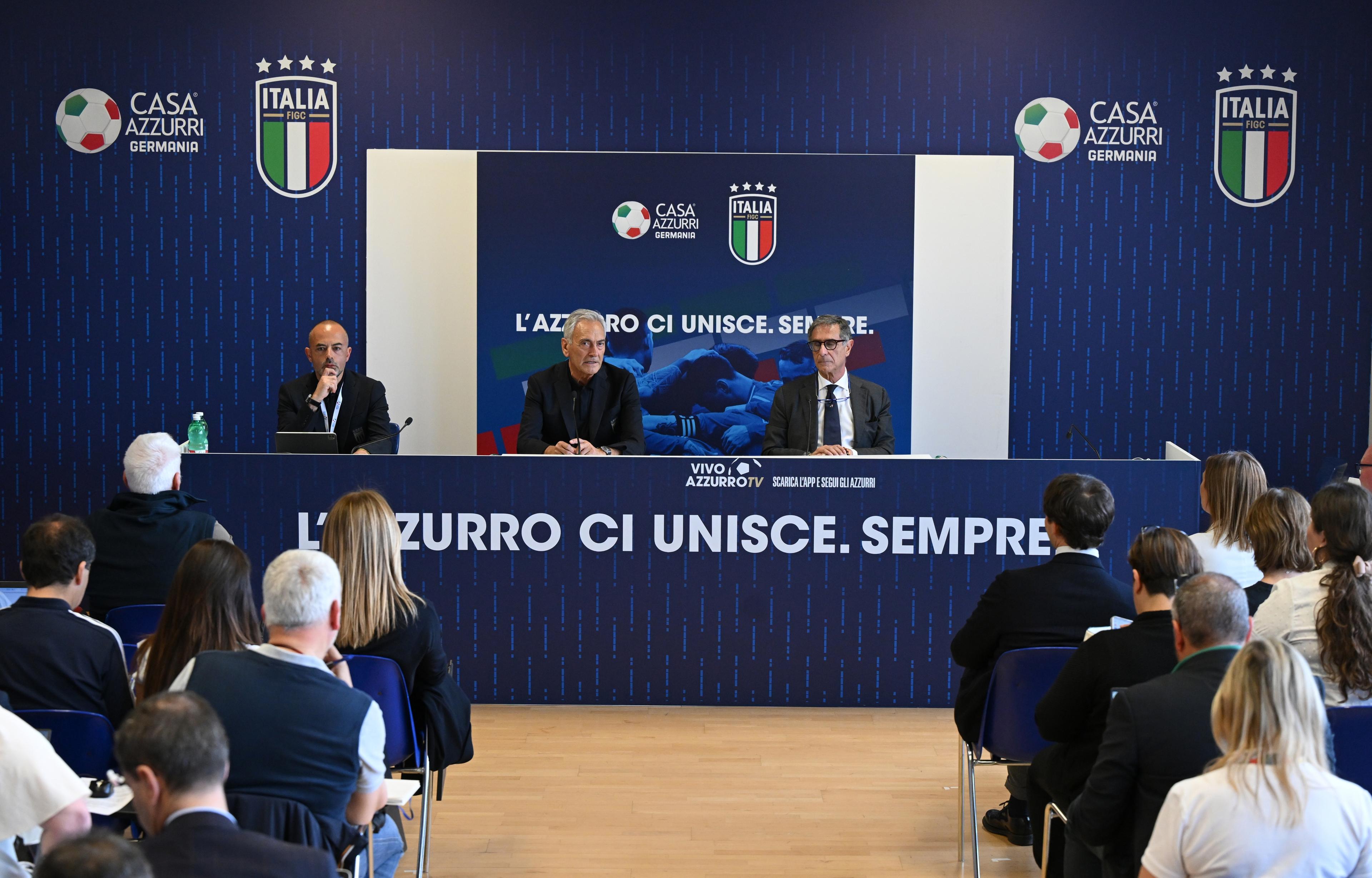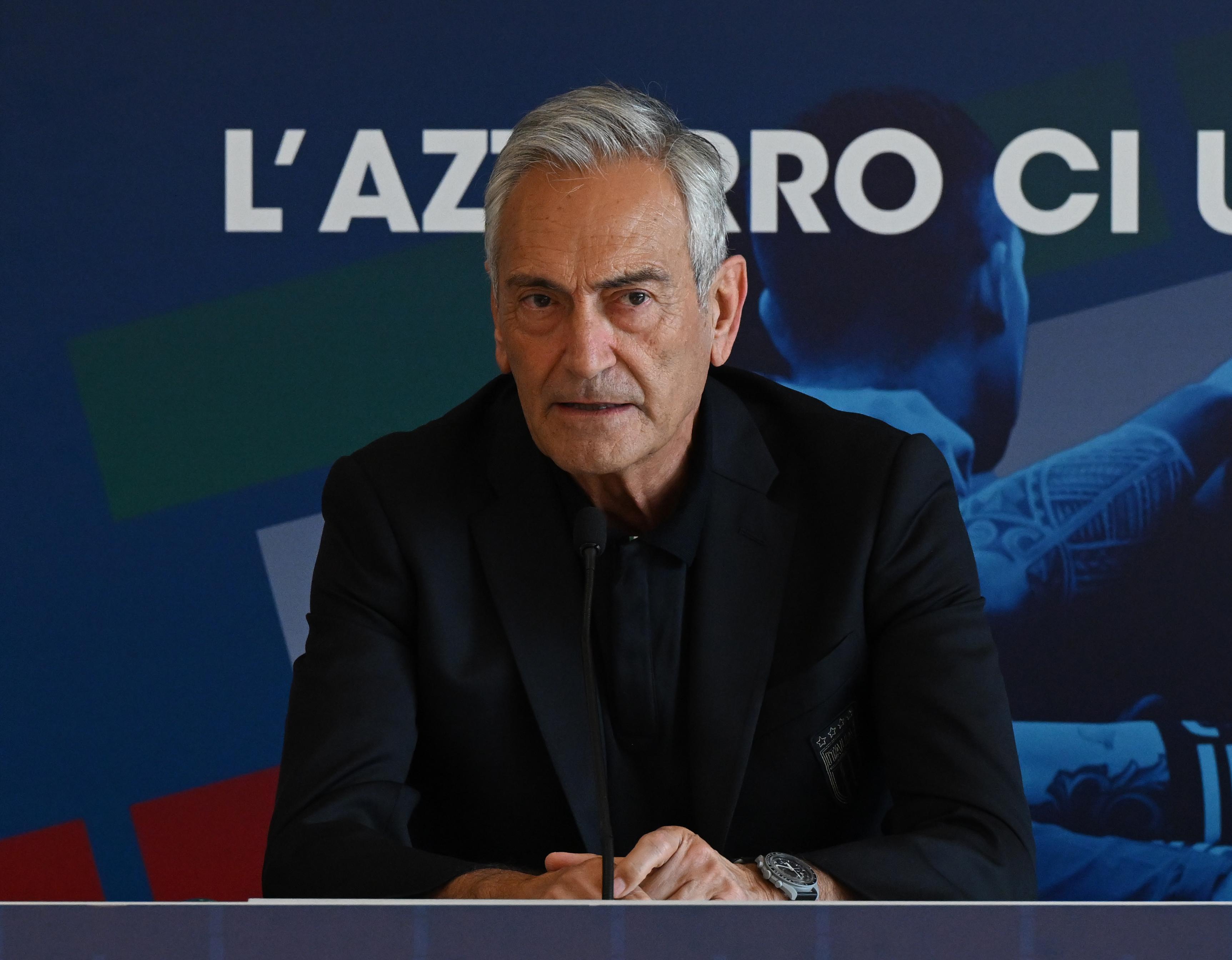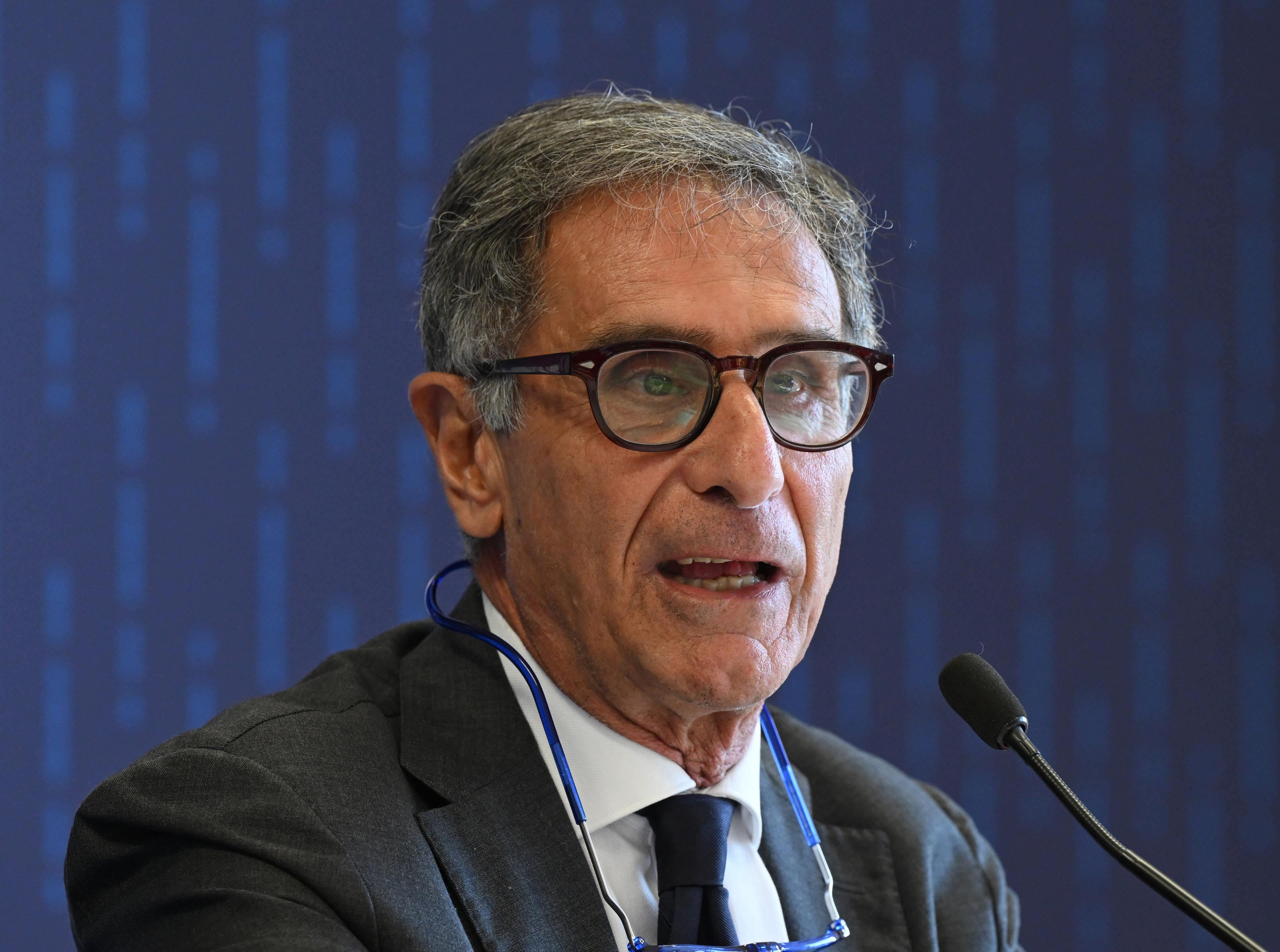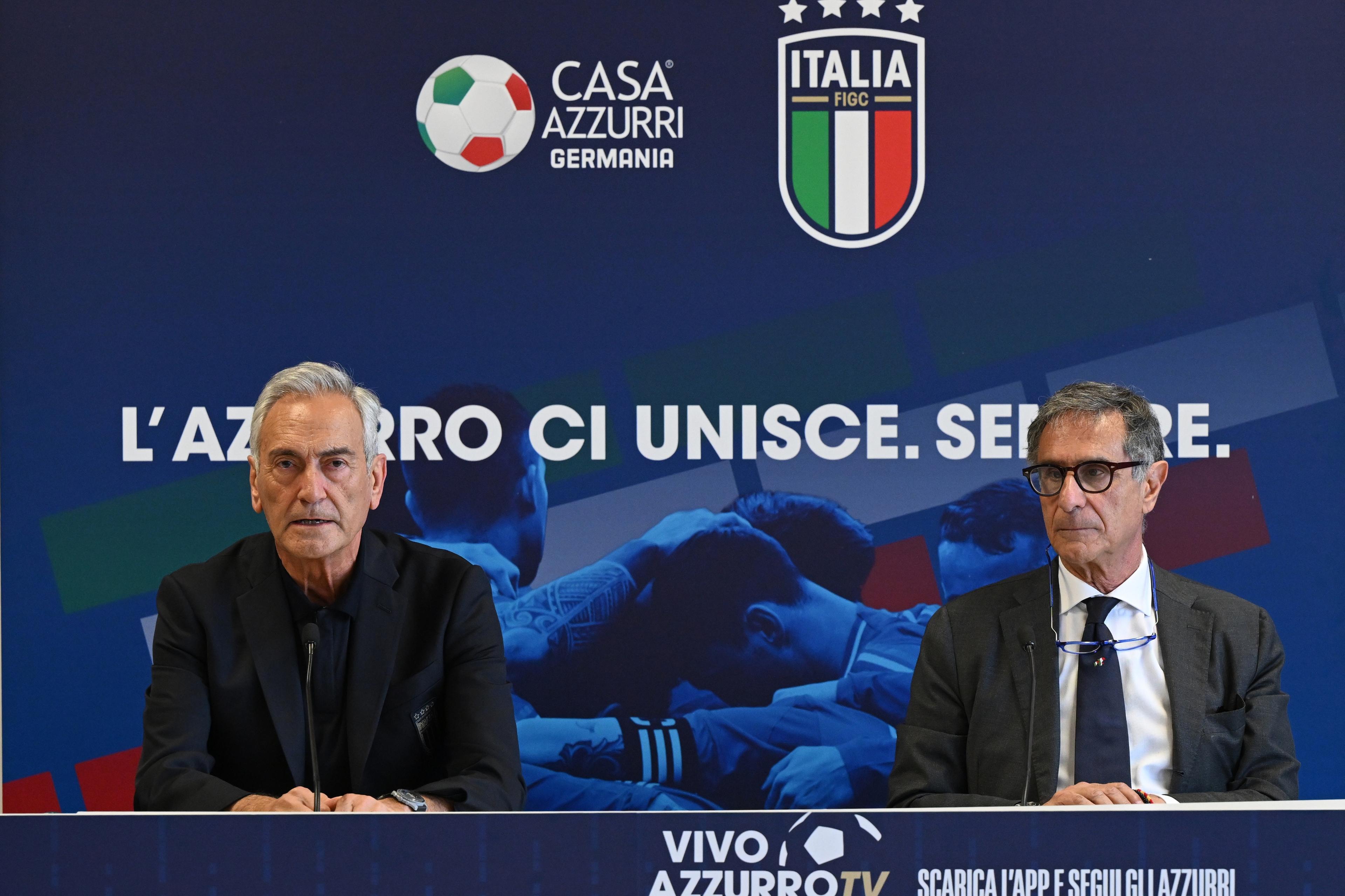PHOTO
ISERLOHN, GERMANY - JUNE 22: Gabriele Gravina and Claudio Barbaro at Hemberg-Stadion on June 22, 2024 in Iserlohn, Germany. (Photo by Claudio Villa/Getty Images for FIGC)
The Italian FA and the Ministry of the Environment and Energy Security have come together to define, plan and work together for the sustainability of football events and sports infrastructures, in line with what is already foreseen in the FIGC's 2030 Sustainability Strategy. The agreement was presented today by President Gabriele Gravina and undersecretary Claudio Barbaro during a press conference held at Casa Azzurri in Germany, the Italy national team headquarters in Iserlohn.


The agreement signed on German soil aims to become a best practice in the sector thanks to the transfer of the Ministry's know-how and the wealth of experience gained by the FIGC during this sporting season. In fact, since July 2023, the FIGC has had its own strategic plan inspired by the UEFA Strategy "Strength Through Unity 2030" which focuses on eleven specific policies (one of these concerns the climate crisis). The document for socio-environmental sustainability aims to accelerate collective action for the respect of human and environmental rights in Italian football and, thanks to the collaboration with MASE, aims to accelerate the creation of a synergy between all stakeholders, promoting a collaborative spirit at all levels through the achievement of measurable and monitorable objectives, as well being taken over into everyday society.


"The path we have undertaken in the field of sustainability is ambitious but achievable, thanks also to the support of partners and institutions such as the Ministry of the Environment," declared the FIGC president, Gabriele Gravina. "For this, I thank the undersecretary, Barbaro, who has shown interest and sensitivity towards our project. We have always been very attentive to sustainability, but today we are acting with a different strategy and logic: the initiatives we are putting into practice are not just random activities, on the contrary we want them to have an impact that can be monitored over time and above all capable of crossing over positively to all of our representatives. Regarding specific activities on environmental protection, only in recent months have we launched the SeminiAMO il futuro campaign, which involves the planting of trees in land taken from the mafia and we have presented the calculation of the carbon footprint produced by the Technical Centre's activities in Coverciano with the aim of measuring it, reducing it and subsequently compensating it".


"For the first time in the history of the Ministry I represent, a delegation on sport has been assigned to an undersecretary and a specific division has been created that will deal with sustainability. This is because we believe sport is an ideal vehicle for environmental education. And we know how sporting events, as well as sports facilities with the theme of disposal or recycling of pitches, efficiency gains, etc., must make important steps towards sustainability," declared the Undersecretary for Environment and Energy Security, Claudio Barbaro. "We have been working on these issues for months, both following the path of a regulated one aimed at bringing order to the matter, and creating pilot events in collaboration with CONI, the federations and amateur organisations. The latest case concerned the Piazza di Siena horse show. The FIGC is certainly a guiding light on the topic of sustainability as it has long been committed to this topic which represents the future. The collaborative relationship will continue even beyond the European Championship as part of a continuous and ever-growing activity."
With regards to the sustainability of the events, for the Azzurri's matches in the UEFA Nations League in autumn (October-November 2024), a new approach will be defined and launched for the analysis and calculation of the impact of individual events in order to then develop an ad hoc program to reduce the impacts deriving from the CO2 emissions produced by matches, with the intention of subsequently extending the project to the matches of the National Women's and Under 21 teams, too. Furthermore, the process has already started for using eco-sustainable materials in stadiums and hospitality areas.
Finally, the collaboration between FIGC and the Ministry of the Environment and Energy Security will allow the launch of a series of shared actions for the sustainability of sports infrastructures, as part of the renovation and structural expansion of the Federal Technical Center in Coverciano, which will then be able to become a model for the sports centres of all the National Sports Federations that want to adapt to the defined standards. A path that has already started with the authorisation for the 'Coverciano 3.0' works by the Municipality of Florence, a large redevelopment project to increase the efficiency of the centre, in which to implement the technical knowledge of the MASE to transform Coverciano into a true environmentally-friendly facility.
